10 Quick Tips About Christian House Music
Top Stories About Hyper Pop Music
What is hyper pop music? What are its origins? And what’s the best way to find out more? There are hundreds of acts contributing to the hyperpop ecosystem, which is spread throughout social networks and chat apps. Online user names for artists can be read off of the screen, and lowercase song titles are often typed straight from messaging apps. Many of the hottest new artists in hyperpop are still young and on the cusp of adulthood.
It’s a genre
What’s Hyper Pop Music, and why should we care? It is an incredibly popular subgenre of music, and one of the most popular genres of the past decade. Fans of this type of music range from young kids to seasoned hip-hop veterans. It is also a genre with an LGBTQ+ focus. It features explicit lyrics and promotes queerness and sexual freedom. And it’s growing as an audience with the rise of streaming services like Spotify and Apple Music.
Many artists fall into this genre, including the popular Glaive, Dorian Electra, and 100 Gecs. Some of the best examples of hyperpop artists are A.G. Cook, EASYFUN, and Umru. These artists all have different slants on the genre, but all are representative of the subgenre. If you’re interested in discovering a new artist, check out their music.
It’s a movement
For anyone who’s missed the hype surrounding the hype of the past few years, Hyper Pop is a movement you should keep an eye on. This style of music was born of the 2010s, and it resisted the trends of the mainstream music scene of the time. The genre’s artists rejected manufactured honesty and soft-spoken raps and embrace the corporate music industry, with samples and speedy saccharine hooks.
The genre grew out of the nascent LGBTQ+ community, which was largely ignored until the early 2000s. Its founder, A.G. Cook, helped bring electro pop powerhouse SOPHIE to fame, pre-pop superstar Charli XCX, and blog favorites QT and Hannah Diamond. The resulting music was awash in bright, synthetic, hyperfeminine sounds, which spawned many thinkpieces from music blogs.
It’s a trend
While it’s hard to define hyperpop, it’s hard not to identify its ethos as an internet phenomenon. The sounds produced by hyperpop artists are maximalist and electronic. They’re noisy, frenetic, and fun. While it may not be for everyone, hyperpop is one of the latest generation’s youthquakes. Here are some of the ways that hyperpop is spreading:
The trend started with the artist SOPHIE. She made waves as a singer on the Hot 100 in the mid-2010s. Since then, she’s become a solo star and sung on tracks as diverse as “Beatlemania” and “Paradise City.” While she’s been preaching against genre labels, her fans have been obsessive. As of this writing, the trend has grown to the point where it has become a billion-dollar industry.
It’s a meme
There’s a growing culture of hyperpop music. The term is an outgrowth of internet meme culture and is defined by the endless remixes and reinterpretations of existing sounds. This type of music is often kitsch and humorous, but often masks deep emotions. Often, the names of the artists are intelligible only because they’re online usernames, and they often have a similar tone to one another.
While the term “hyper pop” can seem overstimulating, it’s an interesting and burgeoning music genre. Recent trends have seen a significant shift in the music industry. Latin and K-pop have become international forces, while pop punk has returned to mainstream culture. Hyperpop artists have an intimate relationship with their fans, forming a unique public persona. These fans create fan-created memes, Reddit posts, and Twitter accounts for each artist.
It’s chaotic
Whether it’s the frantic beats of the band ‘Nine Inch Nails’ or the unhinged, internet-like textures of SOPHIE, Hyper Pop is a genre that thrives in a tumultuous environment. Like many genres, hyperpop filters cultural artifacts through a modern lens. Here are three reasons why hyperpop is the music of the moment.
The first factor to consider is the sound. This new genre is typically chaotic, with vocals being pitched up and a heavy reliance on electronic instruments. In addition to being loud, hyperpop is also often exaggerated. This may be a turnoff to some listeners, but many music lovers find it to be a defining feature of the current generation. Despite the fact that the genre is often categorized as being chaotic, it’s an exciting sound and certainly makes you want to get down and move to it.
The first reason why hyperpop is so edgy is because it celebrates queerness and feminism. Many key players are notable figures in the queer community, and the genre challenges societal structures of ‘traditional’ pop music. It also challenges narrow normative preconceptions and prejudices, reshaping the past to create a more inclusive future. Furthermore, the use of vocal modulation allows artists to explore gender fluidity and transcend heteronormative labels.
It’s erratic
As the name suggests, Hyper Pop music is a subgenre of electronic music that aims to sped up and exaggerate the conventional sound of pop. Its practitioners attempt to avoid conventional genre conventions and are driven by the scene. Most Hyperpop songs sound like a cross between experimental sound design and EDM-influenced pop from the 2010s. Its artists have varying degrees of success. While there is no official definition of this subgenre, it is widely believed to be a growing subset of electronic music.
Artists like Angelus, a member of the French group NOVAGANG, have contributed to the hyperpop sound by creating beats for countless artists. Angelus’ tracks are short and packed with elements, resulting in a wild soundscape that never really gets boring. “Texts” by Angelus is a great example, a track full of bouncing synths that transitions into kaleidoscope-filtered indie rock.
It’s reflective of the times
The ethos of hyperpop is akin to that of dystopian novels that are taught to high school students: they warn of autocratic powers and chaos ruling the world. Like a dystopian novel, hyperpop encourages listeners to imagine a future where society is chaotic and the only hope for humanity is to become an artist, rather than an ordinary citizen. The genre’s popularity is largely attributed to the rise of social media and the Internet.
The concept of hyperpop emerged in the early 2010s, with the emergence of PC Music, a record label founded by A.G. Cook and featuring artists such as electro pop powerhouse SOPHIE, pre-pop sensation Charli XCX, and music blog favorites QT and Hannah Diamond. The label’s trademark bright, synthetic, hyperfeminine sound challenged preconceptions about the pop star.
It’s manipulation
Some have described hyperpop as a new genre of electronic music that builds on the net art style of the PC Music label. In addition to hypnotic beats, this type of music is also closely linked to the LGBTQ+ community. The genre was first popularized in the early 2000s, but its emergence is more recent than its conception. There are many differences between hyperpop and digicore, however, and both genres are heavily influenced by digital production.
While the genre may sound like it is aimed at the LGBTQ+ community, it is becoming increasingly diverse and inclusive. Its influence is based on electronic music genres and online community-building, and it is growing by the week. In this way, it is important to distinguish between a genre that uses the same techniques to make commercial pop music and one that makes use of more innovative techniques. And because the genre is still so fresh and evolving, it is important to remember that the definition of hyperpop is constantly changing.
It’s not for everyone
While the sound of Hyper Pop isn’t for everyone, there are many artists to choose from. Artists that fit this genre include Charli XCX, SOPHIE, and 100 gecs. If you’re unfamiliar with any of these artists, you may be surprised to learn that many of them collaborate with hundreds of other artists. These artists often release a variety of music, and their work isn’t necessarily accessible to the average listener.
While there are a few artists who are pushing the boundaries of hyperpop, the genre isn’t for everyone. Some artists are pushing boundaries and trying to find the perfect balance between a unique sound and a mainstream appeal. In some ways, the genre has become a fad. While many fans aren’t familiar with these artists, their work is a testament to the power of collaboration in music.

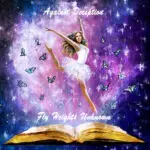
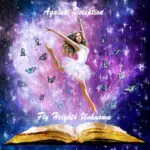
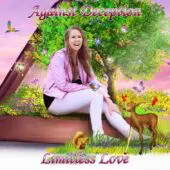
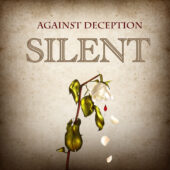
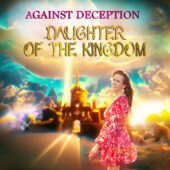
Comments
This post currently has no comments.